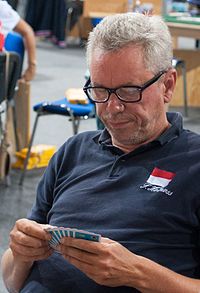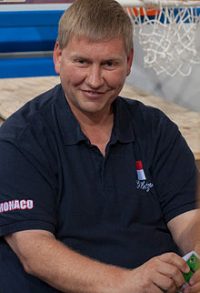Many Norwegians were unaware that they could claim two of the world’s best bridge players, until both were convicted of tax evasion and sentenced to jail last week. They were accused of failing to declare their income, which was so high that it had long failed to qualify as proceeds from a tax-free hobby.

“I’m disappointed,” Tor Helness, age 60, told newspaper Dagens Næringsliv (DN) after he was convicted on charges of failing to declare nearly NOK 10.3 million (USD 1.3 million) in bridge earnings on his tax returns for the years 2006-2014. He was sentenced to 16 months in prison and fined NOK 340,00.
His colleague Geir Helgemo, age 47, was also indicted for failing to declare NOK 7.5 million of his earnings, and convicted. He was sentenced to 14 months in jail and fined NOK 280,000.
Both men are considered two of the best bridge players in the world, winning most of what there is to win of international bridge tournaments. DN reported how Helness, a former stockbroker and investor in Norway, and Helgemo are so good at playing bridge that they were recruited in 2008 by Swiss real estate magnate Pierre Zimmermann to play for a national team he was building up in Monaco. They received professional contracts, use of a luxurious condominium and an offer of resident status in the principality that does not impose income tax.
“Who can say ‘no thank you’ to something like that, to be able to carry out your hobby and get some money in your pocket for it,” Helness testified in the Oslo City Court. He had earlier ended his career as a stockbroker, following a heart attack, and was working as a private investor.

His earnings from bridge amounted to between NOK 600,000 and NOK 950,000 from 2006 to 2008, but he referred to that in court as “small change” compared to what he had earned as a broker and investor. “I can understand that the court thinks those are big numbers, but the strange thing is, that money was just deposited into my account and I never looked after it,” Helness testified, adding that his wife ran the family’s finances.
He still viewed his bridge winnings as hobby income. When he started playing professionally, he concluded that since he lived and earned his money in Monaco, he was no longer subject to paying tax in Norway. That was also the advice he’d recevied from other bridge players and especially one he’d known since the 1980s, a retiree from Drangedal. “I had such trust in him and that what he said was correct,” Helness said.
Helgemo, currently ranked as the world’s best bridge player, testified that he also had relied on the tax advice of their bridge friend, that their only tax liability was to Monaco. He admitted that he should have investigated his tax situation more thoroughly but planned to appeal his conviction, sentence and fine. DN reported that both men have claimed they’ll be filing a civil lawsuit against the regional tax agency in Norway, to clarify their tax liability.
Helness’ defense attorney argued that his client had been “blinded” by the “massive” amount of tax information he’d received from his friend. The court ruled that he should have researched the law better himself. Both men were credited, however, for having cooperated in the case and contributing to factual information. DN reported that actual winnings in bridge competition are relatively modest, but play is organized such that the best bridge teams have a sponsor who pays them to form teams and compete in tournaments around the world.
Helness has been a passionate bridge player since he was nine years old and growing up in Bodø. He played on Norway’s national bridge team at the age of 19 and both he and Helgemo, who’s from Vinstra, won the world championship as part of a team in 2007. Helgemo has also won European, Nordic and North American championship titless, served as a bridge columnist for Norwegian newspaper VG and written the book entitled Bridge with Imagination.
newsinenglish.no/Nina Berglund

